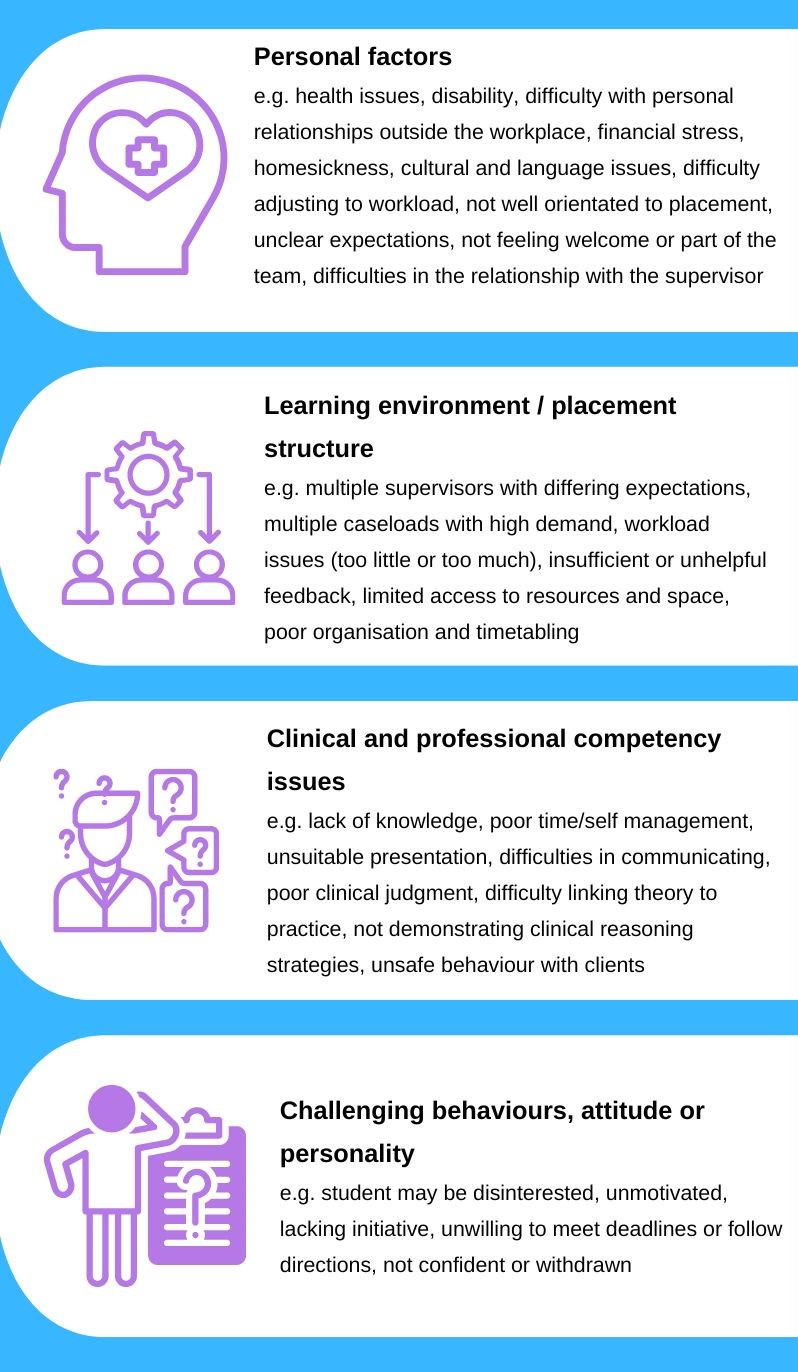- Prepare a timetable to assist both you and the student(s)with workload management. This will make visible the activities/appointments/meetings that are occurring on a daily basis and can be used to assist with student goal setting.
- Ensure everything is included in the timetable – meetings, client appointments, time for reflection and feedback, etc. Some supervisors find it beneficial to develop a student timetable template which can be modified for each student.
- If problems occur with workload management, consider the following:
- Look at the timetable. Were other activities added and by whom? Reflect on whether it was realistic to expect the student to undertake the volume of work that was allocated given their stage of learning and past placement experiences. You may find it beneficial to discuss this with both the student and a more experienced student supervisor
- Remember, some students may find the workload you set challenging while others may require greater challenges. Don’t forget, every student is different. They have different capabilities, experiences, and ways of learning
- Regularly review the students’ workload to ensure their learning experience is maximised. Adjust their workload appropriately. Consider the mix and complexity of their clients and the number of clients. Remember, they may never have experienced working in this type of setting before or conversely, they may have had similar experiences in previous placements.
- Ascertain if there are there any factors that may impact on the student’s performance during the placement These may relate to:
- Student attitude, communication, professional practice, self-management, or clinical skills
- Cultural or linguistic diversity
- Health and /or personal issues
- Developing a collegial and trusting relationship with the student, and setting clear expectations, will facilitate the disclosure of any personal issues proactively. Some factors for the above-mentioned problems can include:

If you identify an issue, then strategies need to be put in place to support the student. Refer to the Managing Difficult Situations section of this website for guidance.


